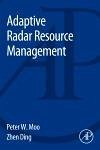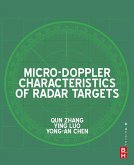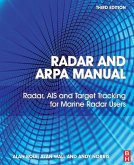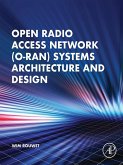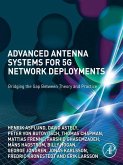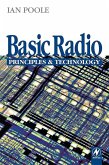Coverage includes:
- RRM's role in optimizing the performance of modern phased array radars
- The advantages of adaptivity in implementing RRM
- The role that modelling and simulation plays in evaluating RRM performance
- Description of the simulation tool Adapt_MFR
- Detailed descriptions and performance results for specific adaptive RRM techniques
- The only book fully dedicated to adaptive RRM
- A comprehensive treatment of phased array radars and RRM, including task prioritization, radar scheduling, and adaptive track update rates
- Provides detailed knowledge of specific RRM techniques and their performance
Dieser Download kann aus rechtlichen Gründen nur mit Rechnungsadresse in A, B, BG, CY, CZ, D, DK, EW, E, FIN, F, GR, HR, H, IRL, I, LT, L, LR, M, NL, PL, P, R, S, SLO, SK ausgeliefert werden.

